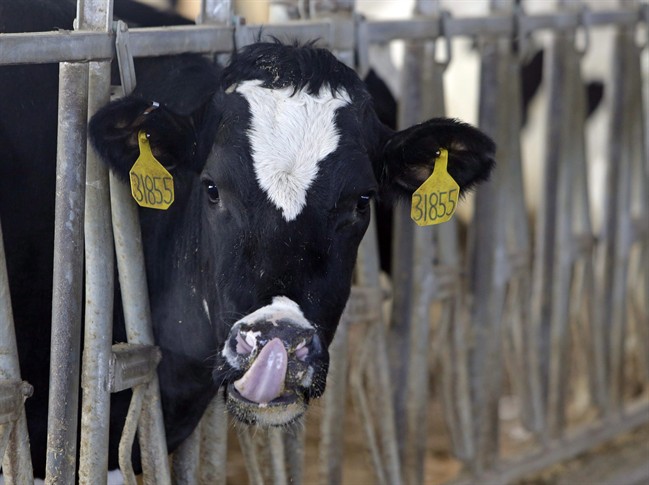Alberta officials continue to monitor the ongoing Avian Influenza break out dairy cow In the United States, producers are advised to monitor their livestock closely.
Avian Influenza The virus has been found in cattle in 11 U.S. states, including Minnesota and Iowa.
Dr. Keith Lehman, the province's chief veterinarian Alberta Agriculture and Irrigationsaid it was vital that dairy producers remain vigilant.
“The most important thing right now is to make sure our producers have a high level of awareness and are monitoring their herds closely before the disease emerges so we can detect it early,” he said.

Dairy producers are urged to keep a close eye on their dairy herds and monitor for signs of avian influenza.
The Canadian Press/AP/Michael Conroy
Last month, Canada introduced new import requirements requiring lactating dairy cows imported from the United States to test negative for avian influenza within seven days before export.
So far, no signs of the disease have been found in dairy cows in Canada, and all milk sold in stores must be pasteurized, which has been shown to effectively kill the virus.
Latest Health and Medical News
Emailed to you every Sunday.
Lehman said dairy farmers can take a number of steps to minimize the risk of the avian flu virus entering their dairy herd and spreading.
“Take steps like isolating new animals to the herd and keeping them separate for a period of time before introducing them to the rest of the herd.”
“If they want to screen ahead of time before they move animals, we offer testing for this virus so they can collect samples from the herds that these animals are coming from and test them before they purchase them or bring them into their herd,” Lyman said.
Signs that dairy cows are infected with avian influenza include decreased milk production, loss of appetite and thicker milk.
On June 5, the World Health Organization confirmed the first ever case of Human Death Caused by a strain of avian influenza virus. The source of the virus is currently unknown.
Lehman said the genes of influenza viruses are closely monitored to determine whether they pose a greater risk to human health.
“There is always a risk that the flu virus could pose a greater threat to people's health and could potentially spread from person to person. But at the moment, fortunately, we are not facing that situation.”
— With files from The Canadian Press
© 2024 Global News, a division of Corus Entertainment Inc.









